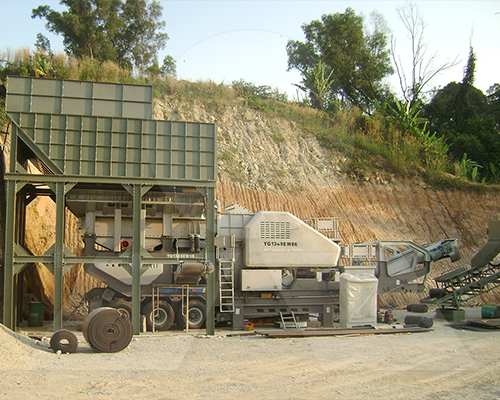The Benefits and Considerations of Second-Hand Portable Jaw Crushers in Canada
Portable jaw crushers are a staple in various industries, including mining, construction, and demolition. Their ability to crush large amounts of material efficiently makes them indispensable. In Canada, the market for second-hand portable jaw crushers is robust, offering numerous advantages and some considerations for potential buyers.
Advantages of Second-Hand Portable Jaw Crushers
- Cost-Effectiveness:
- Lower Initial Investment: Purchasing a second-hand portable jaw crusher is significantly cheaper than buying a new one. This can be a crucial factor for businesses with limited budgets or those looking to expand their equipment fleet cost-effectively.
- Depreciation Savings: New equipment depreciates quickly. By buying second-hand, the initial high depreciation cost is avoided, making the investment more economically sound.
- Proven Reliability:
- Tested Performance: Used crushers have a track record of performance. Buyers can review maintenance logs, operational history, and previous usage data to ensure they are acquiring reliable machinery.
- Established Models: Many second-hand crushers are from well-known brands and models that have proven reliability in the field. This can provide peace of mind regarding the durability and efficiency of the machine.
- Availability and Faster Acquisition:
- Immediate Availability: Unlike new equipment, which may require a long lead time for production and delivery, second-hand crushers are often available for immediate purchase and deployment.
- Wide Selection: The market for used equipment offers a variety of models and specifications, allowing buyers to find a crusher that perfectly fits their specific needs and operational requirements.

Considerations When Purchasing Second-Hand Portable Jaw Crushers
- Condition and Maintenance History:
- Thorough Inspection: It is essential to conduct a comprehensive inspection of the crusher. Look for signs of wear and tear, rust, or any mechanical issues that might affect performance.
- Maintenance Records: Request detailed maintenance records from the previous owner. A well-maintained crusher with a clear history of regular servicing and repairs is more likely to perform reliably.
- Remaining Lifespan and Parts Availability:
- Estimate Lifespan: Assess the remaining useful life of the crusher. This includes evaluating the condition of critical components such as the jaw plates, bearings, and motor.
- Parts Availability: Ensure that spare parts for the specific model are readily available. This is crucial for ongoing maintenance and to minimize downtime due to repairs.
- Technological Obsolescence:
- Updated Features: Compare the features of the second-hand crusher with newer models. While older models may lack some advanced features, they often provide robust basic functionality.
- Future Upgrades: Consider whether the crusher can be upgraded with modern technologies to enhance its performance and efficiency.
- Transport and Installation:
- Logistics: Plan for the logistics of transporting the crusher to your site. Portable crushers are designed for easy relocation, but transportation costs and installation requirements should be factored in.
- Site Preparation: Ensure that the installation site is adequately prepared to accommodate the crusher, including the necessary infrastructure for operation and safety measures.
Conclusion
In Canada, the market for second-hand portable jaw crushers presents a valuable opportunity for businesses to acquire high-performing equipment at a reduced cost. The benefits of cost savings, proven reliability, and immediate availability make second-hand crushers an attractive option. However, it is crucial to conduct thorough inspections, verify maintenance history, and ensure the availability of spare parts. By carefully considering these factors, businesses can make informed decisions and effectively utilize second-hand portable jaw crushers to enhance their operations.
- > Innovative Mobile Crusher with 200 Tons Per Hour Capacity
- > Hydraulic System Troubleshooting Guide for Cone Crushers
- > Jaw Crusher for Mining Stone Crushing
- > Vibrating Jaw Crusher: A Powerful Solution for Russia’s Mining Industry
- > Roll Crusher 100TPH: Efficient Crushing Solution for Medium-Scale Operations
- > The Role of Vibrating Feeders in Artificial Sand Production: Enhancing Efficiency and Output
- > Utilizing Cone Crushers for Gravel Crushing: Efficiency and Advantages
- > Mobile Impact Crusher for Construction Waste Recycling: An Efficient Solution


Online




Message
